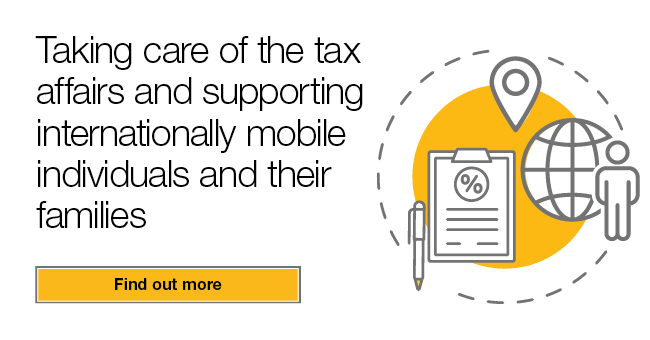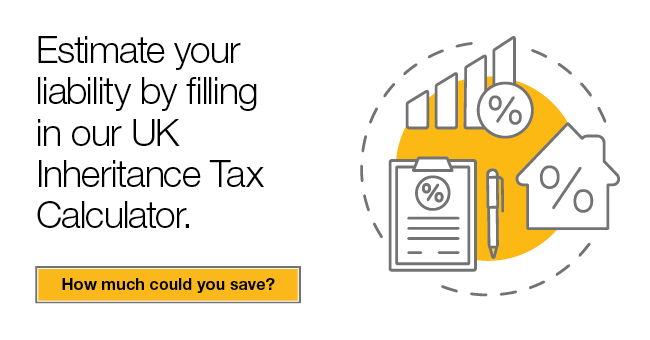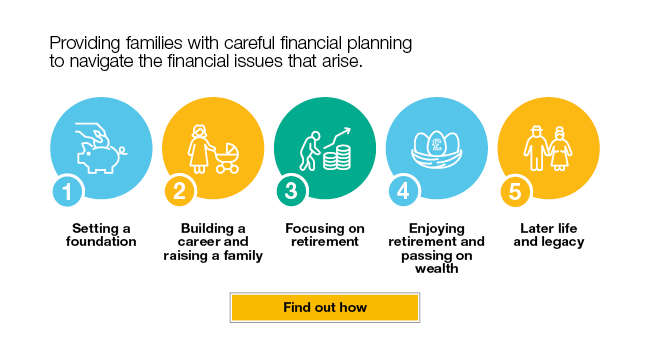
Building and managing your property portfolio
Helping you make the most of your investment


Rebecca Durrant
Partner, National Head of Private Clients

Mark Stemp
Partner, Private Clients London

Nick Latimer
Partner, Private Clients Cheltenham
How a property investment is structured can be one of the key factors in determining the return. Our team has extensive experience of working with investors from the UK and overseas to advise on how best to manage their portfolio.
We can help you:
- structure your property investments to ensure the best return
- decide whether the properties should be personally or company owned
- plan your investments to limit your tax exposure
- understand the tax implications of buying or selling a second home
- understand the tax rules relating to property such as Stamp Duty Land Tax (SDLT) and Capital Gains Tax (CGT)
- understand upcoming tax changes to mitigate risks to your portfolio
- make the most of any allowances or reliefs available to you
- calculate tax costs on the sale of investment, residential or commercial property
- consider tax implications and risks if you are a non-UK domiciled individual
Investing in residential property guide
60 seconds: What you need to know
Frequently Asked Questions
How can I structure my property portfolio more effectively?
Due to the difference in Corporation Tax and Income Tax rates, owning property in a company is often seen as a one size fits all solution. However, while this will be the right answer for some, there are several factors which should be considered, and the correct ownership model for each client will depend on their own personal position.
How will the restrictions on interest relief impact me?
Since 6 April 2017 the amount of relief available to personal landlords has been restricted to the basic rate of tax. This has seen the effective rate of tax for many landlords increase significantly, and can in some cases result in marginal tax rates of more than 100%.
How can I pass the value of my property portfolio to future generations?
Succession planning is an important consideration for many landlords, and passing property portfolios down to future generations carries many tax and commercial considerations. As well as the tax implications, landlords may also wish to consider how they can pass value to future generations whilst still also being able to exert some form of control over the assets in question.
What Stamp Duty Land Tax will I pay on the purchase of a rental property?
Since April 2016 there has been an increased rate of SDLT for taxpayers buying additional residential property. This has seen an increase in the cost of properties purchased by landlords, but as SDLT rates have increased it has also seen greater focus being placed on potential SDLT reliefs e.g. Multiple Dwellings Relief and Mixed-Use Claims.
Helping guide you through your financial goals to shape your future.test2
Please fill in the details below to download the PDF
Moving to the UK or overseas
Helping you plan your move tax-efficiently


Rebecca Durrant
Partner, National Head of Private Clients

Richard Bull
Partner, Private Clients Midlands

Lisa Mead
Partner, Private Clients
When contemplating a move to or from the UK it is important that you seek advice early. We work with our clients’ existing advisers or with our colleagues in the Crowe Global network to provide coordinated advice to internationally mobile individuals, balancing tax efficiency with their personal and business requirements.
We can help you:
- understand the tax implications of coming to or leaving the UK
- consider the timing of UK residence and cessation of residence in the other country, or vice versa
- by advising on temporary non-residence
- with pre-arrival and pre-departure planning
- structure your investments and business interests for international tax efficiency
- understand your domicile status and the Inheritance Tax (IHT) implications of deemed UK domiciled status
- understand the impact of the proposed changes to the taxation of non-UK domiciled individuals from 6 April 2025 announced in the March 2024 Budget
- with remittance basis planning for non-UK domiciled individuals
- structure the ownership of residential property
- determine Tax treaties and how to claim relief from double taxation
- consider Inheritance Tax (IHT) and succession planning
- ensure you are complying with your UK tax obligations.
Services to international private clients
60 seconds: What you need to know
Frequently Asked Questions
If I spend less than 90 days in the UK in a tax year, does this mean that I am not UK resident for that year?
Not necessarily. UK residence is determined by a combination of factors as set out in the Statutory Residence Test, of which days of presence in the UK is only one. Please follow this link to see our briefing note on the Statutory Residence Test.
Do I escape liability to UK capital gains tax once I am not UK resident?
Generally yes, but with some notable exceptions. You will remain liable to report and pay tax on any capital gain arising on the disposal of UK property or land whilst non-UK resident, with a tight deadline of 60 days from completion of the sale for reporting and payment of the tax. In certain circumstances you will also remain liable to pay capital gains tax on the disposal of any asset during a period of non-UK residence of less than five years. We can advise further on departure planning and ongoing UK capital gains tax exposure
If I become UK resident, will the value of my investments be rebased on arrival?
No, there is no rebasing on arrival in the UK. Capital gains and losses on the disposal of investments are calculated by reference to their original cost, even if acquired before you become UK resident. We can help you with pre-arrival planning to mitigate your Capital Gains Tax exposure.
What is this I hear about the 'non-dom' regime being abolished?
In the 2024 spring Budget the government announced plans to replace the current Income Tax, Capital Gains Tax and Inheritance Tax regime for non-UK domiciled individuals with a residence-based regime from 6 April 2025. Our initial reaction can be found here - Abolition of non-dom regime. We are currently awaiting publication of further detail and draft legislation on the proposed changes. Existing UK resident non-doms should seek bespoke advice to understand how the proposed changes will affect them.
Helping guide you through your financial goals to shape your future.
Please fill in the details below to download the PDF
Starting a Family
Is there ever a good time?


Rebecca Durrant
Partner, National Head of Private Clients

Sue Daye
Partner, Private Clients Cheltenham

Tom Elliott
Partner, Head of London Private Clients
Bringing a new life into the world can be one of the most rewarding and exciting things you can do. But as most parents will tell you, it’s an expensive business. According to the Child Poverty Action Group, in 2020 the additional basic cost of a child, from birth to age 18, was £71,611 for a couple family and £97,862 for a lone-parent family. If housing and childcare costs are added these costs rise to £152,747 and £185,413 respectively.
We can help you:
- by providing advice on tax efficient investments for your children such as Junior ISA’s and Junior Investment Accounts
- plan for your retirement and advise on pension planning
- make sure your children are fully utilising any of the tax-free allowances
- ensure any gifts from parents and grandparents are tax-efficient
- with the use of Trusts and ensuring they meet your requirements
- understand the tax advantages of having an up to date Will in place
- with advice on claims for Child Benefit, including clawback of the benefit for higher rate taxpayers
- with information regarding tax-free childcare.
Inheritance Tax calculator
60 seconds: What you need to know
Frequently Asked Questions
Do children pay tax?
It is possible for children to pay tax, however, by making sure that all available reliefs and allowances for your children have been claimed, and with some proactive tax planning, it should be possible to mitigate family tax liabilities.
Is having a Trust for my children a good idea?
Although there are professional fees involved, these can be more than offset by a correctly structured and administered Trust that fully utilises the personal reliefs and allowances for your children. Not only are Trusts tax efficient they are also useful for asset protection for the next generation.
Now I have children should I have a Will?
Having children, along with getting married and owning your first property is one of those watershed moments in life where you should seriously consider having an up to date Will. Should the worst happen, wouldn’t you want to have some say in the raising and provision for your children?
Can tax planning assist with the costs of raising children?
The cost of raising a child from birth to age 18, and beyond, is expensive, however we can help you with tax efficient planning ideas which will assist in making those costs less burdensome.
Helping guide you through your financial goals to shape your future.
Please fill in the details below to download the PDF
Investing for the future
Manage your finances to meet your long-term goals


Rebecca Durrant
Partner, National Head of Private Clients

Phil Smithyes
Partner, Head of Financial Planning Thames Valley

Tom Elliott
Partner, Head of London Private Clients
Whether you want to increase your wealth or preserve what you have, we can help you manage your finances in the best way to meet your needs, both now and for the future. We will work with you to assess your goals, create a financial plan, put it into practice and review it regularly.
We can help you:
- identify your investment goals and put a pre and post retirement investment strategy in place
- risk assess your current circumstances and put a flexible financial plan in place to change as your goals change
- preserve your estate and mitigate your Inheritance Tax (IHT) exposure
- provide investment solutions to provide growth and income
- ensure you have adequate financial protection in place for your family such as life assurance, mortgage protection and critical illness cover.
Financial Support throughout your life
60 seconds: What you need to know
Frequently Asked Questions
What is financial planning?
Financial planning helps you make sensible decisions about your money so you can achieve your goals in life. A good financial planner should work with you to build a comprehensive plan tailored to meet these goals and aspirations, whether that is understanding your retirement needs, protecting your family, how you wish to pass on your wealth or a range of other needs. They will also be able to help you take advantage of tax efficient planning techniques and keep you informed about changes in legislation which may impact you.
What is the difference between an independent advisor and a restricted advisor?
An independent advisor will be able to source solutions for you from the whole market considering all products from all providers, which should be given without bias or restriction. A restricted advisor will be limited to the types of products and providers that they or their firm are able to recommend. At Crowe we are proud to be independent offering you clear well rounded advice.
How much does financial advice cost?
Fees can be difficult to differentiate between advisors as they may charge in different ways depending on the services they provide. This can include an advisor’s hourly rate, a flat fee for advice, a percentage of funds to be invested or commission on products an advisor recommends. You should always ensure you understand how much you will be paying them in total for their services and they should provide this in writing before you make any decision to proceed. This should also include any costs incurred should you decide to leave them in the future. You should not incur penalties or additional charges for deciding to go elsewhere if you are not happy.
Helping guide you through your financial goals to shape your future.
Please fill in the details below to download the PDF
Supporting your children
Helping you guide and support the next generation


Rebecca Durrant
Partner, National Head of Private Clients

Sue Daye
Partner, Private Clients Cheltenham

Phil Smithyes
Partner, Head of Financial Planning Thames Valley
When it comes to children, putting in place a long-term financial plan from the outset can really pay off. We can advise you on how to plan for school and university fees, help them onto the property ladder and pass on wealth in a tax efficient way when the time comes.
We can help you:
- start regular savings when your children are born to build into a substantial nest egg by the time they leave school
- save for children’s education
- buy a property for your child to live in at university balancing the risks and benefits of child vs parent as beneficial owner
- help adult children get on to the property ladder and understand the implications of gifting a cash deposit, family deposit mortgages or a guarantor mortgage
- bring children into the family business by gifting shares in a family company
- teach the next generation how to manage family wealth using vehicles such as a Family Investment Company or Family Charitable Foundation and the implications of inheriting wealth
- pass on wealth to the next generation efficiently including lifetime gifting and optimising Inheritance Tax (IHT) reliefs and exemptions
- update your Will and ensure you have appropriate life insurance in place.
Inheritance Tax calculator
60 seconds: What you need to know
Frequently Asked Questions
Should I set up a Trust to save for future school fees?
A Trust can be a tax efficient way of saving for children’s school fees. However, if the Settlor of the Trust is the parent of the school age children they will be taxed on the income in the Trust as if it was their own. A Trust is therefore most likely to be tax efficient when grandparents are establishing the Trust fund.
What do I need to consider when buying a property for my child to live in at university?
You will need to consider if the property should be owned by you or by your child. The benefit of your child owing the property is that he should benefit from Private Residence Relief on any capital gain during their occupation, they will be able to claim Rent-a-Room relief to exempt up to £7,500 of rental income from other lodgers and if he does not currently own a property the SDLT surcharge of 3% can be avoided on the purchase price. The tax advantages will of course need to be balanced against them owning a valuable property and the associated asset protection risks.
What is a Family Investment Companies (FIC) and what does it involve?
A Family Investment Company is a company that invests rather than trades. It typically holds an equity portfolio or property. Any profits are subject to corporation Tax rather than Income Tax and Capital Gains Tax. As corporation Tax rates are still much lower than Income Tax rates this represents a real Tax Saving compared to personal ownership. Some sources of income such as dividends may not be subject to Tax at all in a FIC. A FIC can also be a useful tool for Inheritance Tax and succession planning as additional family members can easily be brought in as shareholders.
I would like to gift my child some shares in my trading company. Will this crystallise a capital gain?
Yes, a gift is a disposal for Capital Gains Tax purposes and the sale proceeds are deemed to be the full market value of the shares even though no proceeds are received. However, if you are gifting a qualifying business asset, and shares in an unquoted trading company can qualify, then business asset gift relief should be available to defer the Capital Gains Tax liability until your child sells the asset.
Helping guide you through your financial goals to shape your future.
Please fill in the details below to download the PDF
Getting divorced or separating
Helping to make the process as stress free as possible


Rebecca Durrant
Partner, National Head of Private Clients

Lisa Mead
Partner, Private Clients

Nick Latimer
Partner, Private Clients Cheltenham
When separating or getting divorced, tax is not one of the first things that comes to mind. However, it should not be overlooked as transfers of assets between separating spouses or civil partners are likely to have future tax implications. Ensuring you have the right planning in place is important to mitigate your potential tax exposure and reporting obligations.
We can help you:
- Value your assets and decide how the assets should be split
- Consider the inherent Capital Gains Tax (CGT) implications and reliefs available, such as Private Residence Relief (PRR) on sale of the family home
- Understand the tax implications of Mesher Orders and deferred charges if the sale of the family home is to be deferred
- Advise on funding for the children, both now and for the future
- With the disposing of assets so that cash can be divided between both parties taking into account any CGT implications
- With witness reports for the court as a Single Joint Expert or as a Shadow Expert
- By providing joint expert reports for mediation, collaborative law and arbitration
- Put in place life assurance and mortgage protection
- Decide on the extent to which your financial settlement may include pension pot entitlements
- Deal with overseas assets such as bringing funds into or getting funds out of the UK (utilising our Crowe Global network for worldwide tax advice)
- Determine risks of taxable remittances in organising payment of settlement amounts if you are not domiciled in the UK
prepare to update your Will and financial plan including advising on your exposure to Inheritance Tax (IHT).
A guide to matrimonial disputes
60 seconds: What you need to know
Frequently Asked Questions
What happens to the family home when we split up? Will I have to sell my share?
This will depend on what you decided as part of the divorce or separation settlement. However, the law has recently been changed to provide as many opportunities for full relief from capital gains tax to be applied when interests in a property are either transferred to the other party or sold to a third party. This includes where Mesher Orders or Deferred Charges are in place which enable an interest in sale proceeds to be received, long after the interest has been passed to the other party.
How do I plan for giving my children financial support if I get divorced?
As part of the divorce, an agreement should be made as to what financial support is given to the children - how much and for how long etc. You will need to understand your obligations to know if any planning is required to meet these obligations from your current income, or if you need to sell assets (which may have potential Capital Gains Tax implications) either for additional cash or to invest in income producing assets. We can assist with an overview summary to understand your current position, your obligations and suggestions for tax efficient methods to obtain liquid cash to make any payments. This will likely be done in conjunction with a Financial Planner – we can introduce you to our Crowe Financial Planning team if you need assistance in this area.
Do I have to sell my assets to fund my divorce?
As part of the divorce agreement you may need to transfer certain assets to your ex-partner, and vice versa. Since 6 April 2023 assets transferred on order of the Court in divorce proceeding (or up to the end of the third tax year after separation if you choose not to formally divorce) will transfer at no gain/no loss for Capital Gains Tax purposes. This means that there will be no immediate “disposal” that may generate a tax liability, but the responsibility for any inherent gains already building up within that assets will be passed from the ex-partner to you (or vice versa). As such, it is important to understand the level of inherent gains within each asset transferred in order to avoid any surprises when that asset is eventually sold. It is sensible to understand your income and assets to know if assets need to be sold, and the gains arising, and tax implications thereon. Planning can be implemented to dispose of assets with minimal gains arising. If you have property other than your main home and an agreement is made to swap properties between you, there may be tax planning available to mitigate gains arising on the transfers.
Are some of my assets, like my pension pot, protected on divorce?
This can depend on the type of pension and what is agreed on divorce. Thought will need to be given to the tax implications of ‘giving up’ pension funds to your ex-partner, and the tax implications when the pension is eventually drawn (either as a lump sum, or annuity or regular payment). Any overseas pensions can sometimes have complications due to both countries wanting their slice of the tax – although most double tax treaties between the UK and the foreign country provide relief against double tax. We can assist with pension tax planning so you know your future tax obligations.
What is a Single Joint Expert Witness?
Sometimes in divorce, the Court asks, on behalf of both parties, for a Single Joint Expert witness to independently comment on the value of certain assets, and/or the tax implications of transferring those assets between divorcing spouses/civil partners. This can often be essential to reaching a negotiated settlement and can therefore also be used before the issue of court proceedings in mediation, collaborative law and in arbitration.Crowe has experience in providing such reports and understanding the format the Court requires and explaining the position to the lawyers and parties involved.
Helping guide you through your financial goals to shape your future.
Please fill in the details below to download the PDF
Giving to charity
Helping you give more to the causes you care about


Rebecca Durrant
Partner, National Head of Private Clients

Tom Elliott
Partner, Head of London Private Clients

Richard Bull
Partner, Private Clients Midlands
Gifting to charities to make a positive difference to society can be complex. There are a number of tax-efficient methods for giving to charities. Our team has extensive experience in advising on the best way to gift to charities for the causes you are passionate about.
We can help you:
- decide the best way to structure your charitable giving to ensure it meets your philanthropic aims
- understand the different charitable giving options available to you and the tax reliefs available on gifts and donations
- ensure both you and the charity are benefitting from the tax reliefs available
- ensure you are maximising the tax relief available to you and the charity
- consider other tax reliefs available for non-cash gifts to charities, such as land and property or investments
- set up a Trust or charitable foundation for long-term philanthropy
- assist you in updating your Wills to include any philanthropic planning
- understand the Inheritance Tax (IHT) implications of including tax-efficient charitable donations in your Will.
Inheritance Tax calculator
60 seconds: What you need to know
Frequently Asked Questions
What are the different options to make a charitable donation and obtain tax relief?
You can make a gift aid donation, gift to charity via your salary (GAYE), a gift of quoted shares, land or property, charitable donations made via a Will, make a donation to a charitable Trust.
How do I make a gift aid claim?
When donating online, ensure you click the ‘gift aid’ button. If donating in a shop, you may be asked to fill out a donation card, ensure you tick the ‘gift aid’ box. Contact the charity to confirm you would like to make a claim for gift aid for the donation you are making. You must be a taxpayer to claim gift aid.
How do I obtain income tax relief for charitable donations?
Gift aid payments are made net of 20% basic rate tax, for example, if you wanted to make a charitable donation of £100, you would donate £80 and the charity will then claim back £20 from HMRC. If you are a higher rate or additional rate taxpayer, you will make the claim for additional income tax relief via your self-assessment tax return.
Helping guide you through your financial goals to shape your future.
Please fill in the details below to download the PDF
Becoming a business angel investor
Investing to help UK businesses flourish


Rebecca Durrant
Partner, National Head of Private Clients

David Ford
Partner, Private Clients
If you are looking to invest into the UK economy and support flourishing UK businesses by way of providing funds or expertise, you should be aware of the options available to you.
Investing in to early stage businesses can initially appear very daunting but there are a number of tax-efficient methods which can be used to optimise your return. Whether or not you are already in the UK, advice should be sought before any investments are made.
We can help you:
- understand the options available to you and the associated tax incentives of any schemes
- ensure you meet any qualifying criteria and understand the restrictions to avoid
- structure a return on your investment
- understand the tax implications on a successful exit including Capital Gains Tax (CGT) and potentially Income Tax
- ensure you are utilising any reliefs available
- understand how losses can be utilised to mitigate your risk
- consider the tax implications if you are a non-UK domiciled individual and the importance of timing
- understand the impact on your Inheritance Tax (IHT) position.
A guide for investors
60 seconds: What you need to know
Frequently Asked Questions
What tax relief can I expect at the outset?
Provided you are subscribing for shares in a qualifying company, you can expect relief at the following rates: 30% (EIS and VCT) or 50% (SEIS).
How do I claim tax relief on my investment?
Depending on your investment, you would ordinarily claim any available tax relief via your Self-Assessment tax return. However, you may also have the option for a standalone claim.
What evidence should I retain when I make my investment?
If you are making an investment under a scheme with tax incentives (e.g. EIS, SEIS or VCT), you should be provided with a certificate by the investee company. This certificate is needed for your tax return.
What should I expect my tax bill to be when I sell my investment?
If you subscribed for shares in a qualifying company under EIS, SEIS and VCT, and meet the relevant qualifying criteria, your shares could be disposed of tax-free. In all other cases CGT can be either 10% or 20%, depending on what rate of tax you pay and whether any tax reliefs are due.
As a non-domiciled individual, can I use offshore funds to invest into the UK?
You may be able to claim Business Investment Relief but careful planning should be undertaken first.
Helping guide you through your financial goals to shape your future.
Please fill in the details below to download the PDF
Growing and selling your business
Supporting you on your journey


Rebecca Durrant
Partner, National Head of Private Clients

David Ford
Partner, Private Clients

Simon Warne
Partner, Private Clients Kent
Whether you are looking to grow your business organically or through acquisition, in the UK or internationally, we are able to support you on your journey and work with our international network, Crowe Global as appropriate. We can also help to prepare your business for sale and ensure that as the business owner your wealth is protected.
We can help you:
- if you are raising equity finance, consider the availability of EIS, SEIS and VCT reliefs
- take care with debt financing and the deductibility of interest payments
- consider how best to structure asset or business acquisitions
- ensure you are claiming valuable tax reliefs such as R&D, capital allowances and Patent Box
- understand the tax and wider implications of trading or expanding internationally
- consider incentivising your employees/management through targeted employee share schemes including employee ownership Trusts
- ensure key workers and shareholders are protected accordingly
- review profit extraction and remuneration planning to ensure this is arranged tax efficiently
- consider succession planning – whether that be passing on the business to family members, an MBO or third-party sale
- structure your exit from the business tax efficiently
- plan for retirement and consider your exposure to Inheritance Tax.
Navigating through the business lifecycle
60 seconds: What you need to know
Frequently Asked Questions
How much can my company raise through venture capital schemes?
The maximum amount you can raise in the lifetime of your company for: - SEIS investments is £150,000 - SITR investments is £1.5 million - EIS - VCT investments is £12 million. There may be higher limits if your company carries out research, development or innovation and meets certain conditions.
What are the benefits of an employee share scheme?
Employee share schemes can help you attract, incentivise and retain key employees by giving them a direct financial interest in the success of the company. You may be able to set up a tax advantaged scheme such as EMI, CSOP or SIP.
How much tax do I have to pay when I sell my business?
If you personally sell your business for a profit, you may be liable to Capital Gains Tax at up to 20%. Note however that you may be able to claim Business Asset Disposal Relief (formerly known as Entrepreneurs’ Relief), in which case you pay tax at the lower rate of 10% on the first £1 million of lifetime gains.
What is an Employee Ownership Trust?
An Employee Ownership Trust is set up to benefit all employees of the business. Provided specific qualifying criteria are met they can also provide a tax efficient vehicle for business owners to sell their shares typically free from tax. This means they provide an alternative market for sale which could be considered as part of your succession plans.
Helping guide you through your financial goals to shape your future.
Please fill in the details below to download the PDF
Preparing for your retirement
Maximising your income in retirement and meeting your goals


Rebecca Durrant
Partner, National Head of Private Clients

Nick Latimer
Partner, Private Clients Cheltenham

Phil Smithyes
Partner, Head of Financial Planning Thames Valley
Planning for your retirement can be complex, however it is important that you plan early to ensure that you maximise funds available to have a comfortable retirement. We can work with you to advise on the best way to plan for your retirement and maximise income available.
We can help you:
- create and implement a strategy for retirement taking into consideration the income you will need
- sustain a tax-efficient and comfortable living during retirement
- ensure your plan meets your goals
- maximise the pension annual allowances available to you and advise on making pension contributions up until retirement
- make tax efficient gifts and understand the Inheritance Tax (IHT) implications of gifting assets or money
- ensure you are making the most of any allowances and reliefs available to you
- maximise your income from your business in a tax efficient method before you retire
- with preparing to exit your business or partnership and the most tax efficient way of doing so.
Financial Support throughout your life
60 seconds: What you need to know
Frequently Asked Questions
How do I obtain Income Tax relief for personal pension contributions?
When you make a personal pension contribution, you will receive 20% relief at source (HMRC will include an additional 20% of your contribution into your pension fund). For example, if you make a pension contribution of £80, £100 will go into your pension pot. If you are a higher rate or additional rate taxpayer, you will make the claim for additional income tax relief via your self-assessment tax return.
Can my employer make a pension contribution to my pension pot?
Yes, if a contribution is made by your employer into your pension put, this is a tax-free benefit for you. In addition, your employer can claim a Corporate Tax deduction (currently at 25%) for the contribution made on the basis that the contribution is made ‘wholly & exclusively’ for the purposes of your employer’s trade.
What is the annual pension allowance?
The annual pension allowance is the total amount of pension contributions you can put in your pension pot during one tax year (for the period 6 April to 5 April). If you exceed this amount, you will be liable for the annual allowance charge. The current pension annual allowance is £60,000, unless you have high income levels (broadly over £260,000), in which case your annual allowance may be tapered (to a minimum of £10,000). The calculation can be complex, however we will be happy to assist. The pension lifetime allowance is being abolished from April 2024, meaning there will no longer be any limit to the amount an individual can contribute to their pension. The lifetime allowance charge was removed on 6 April 2023.
Helping guide you through your financial goals to shape your future.
Please fill in the details below to download the PDF
Planning for unexpected events
Helping you prepare for life’s highs and lows


Rebecca Durrant
Partner, National Head of Private Clients

Richard Bull
Partner, Private Clients Midlands

Simon Warne
Partner, Private Clients Kent
Unanticipated circumstances can be fortuitous or devasting; whether it is a lottery win, provision for care home fees or death. Our team has extensive experience in helping you plan for and navigate these unexpected events.
We can help you:
- provide for the next generation or protect a vulnerable relative
- understand your tax position following the receipt of an inheritance or lottery winnings
- calculate your Inheritance Tax (IHT) exposure
- provide guidance on how to make a tax-efficient Will
- understand the tax implications of making gifts
- utilise your gift allowances
- structure your assets to ensure your estate qualifies for IHT exemptions
- consider making IHT efficient investments
- consider creating Trusts or Family Investment Companies (FICs)
- assist with the administration of an estate.
Inheritance Tax calculator
60 seconds: What you need to know
Frequently Asked Questions
I have won some money. Do I need to pay tax on my winnings?
In the UK, the receipt of lottery and gambling winnings are exempt from tax. However, should you invest these winnings, and income or gains arise from this investment, you may then be subject to tax.
Will my estate be subject to Inheritance Tax?
Everyone is entitled to a nil rate band (currently £325,000). It is the value of your estate in excess of your nil rate band that may subject to Inheritance Tax at 40%. Your nil rate band may be reduced if you have made gifts within seven years of death. Reliefs and exemptions may be available to reduce the Inheritance Tax due.
Should I get a Will?
If you die without a Will, your estate may pass according to the laws of intestacy, which dictate who will be entitled to your assets. Putting a Will in place, allows you to specify who you would like to leave your estate to and could also deal with other matters such as your desired funeral arrangements and who should be the guardian of any minors you have.
What is a Trust?
A Trust is an arrangement whereby assets are transferred from one person (the Settlor) to another person (the Trustee) to hold for the benefit of another person (the Beneficiary). Trusts are often used to protect family wealth or to mitigate Inheritance Tax exposure.
Helping guide you through your financial goals to shape your future.
Please fill in the details below to download the PDF








